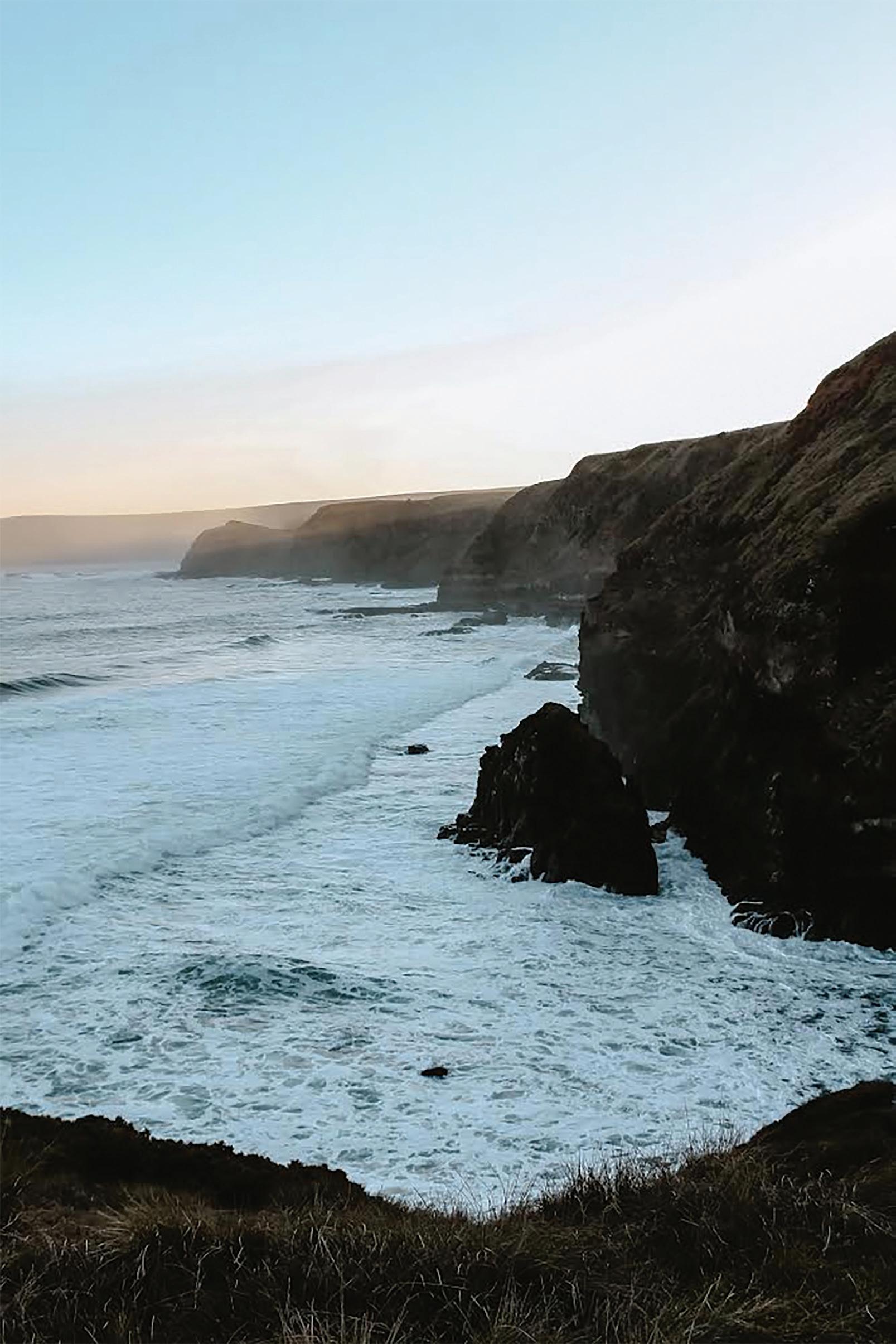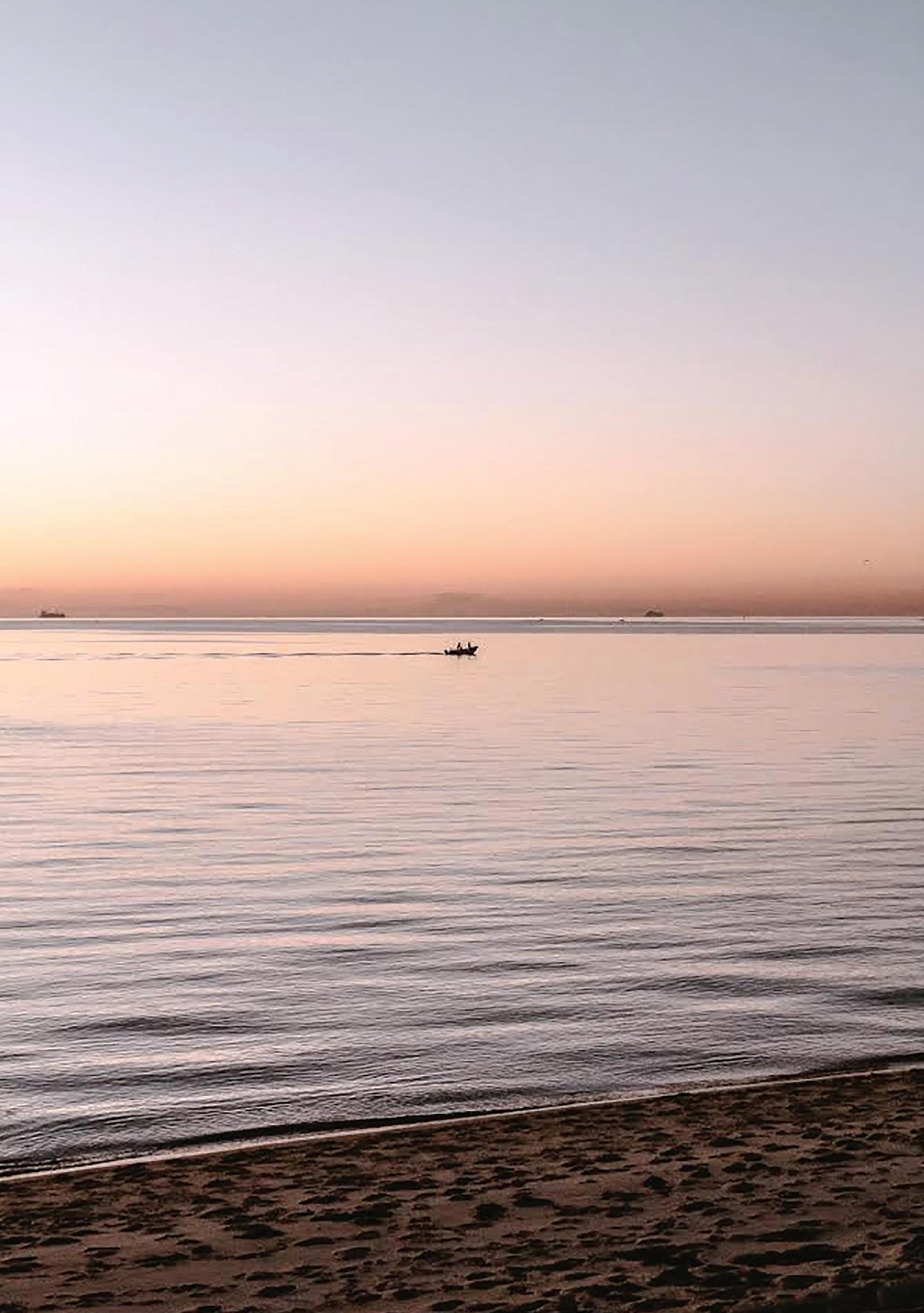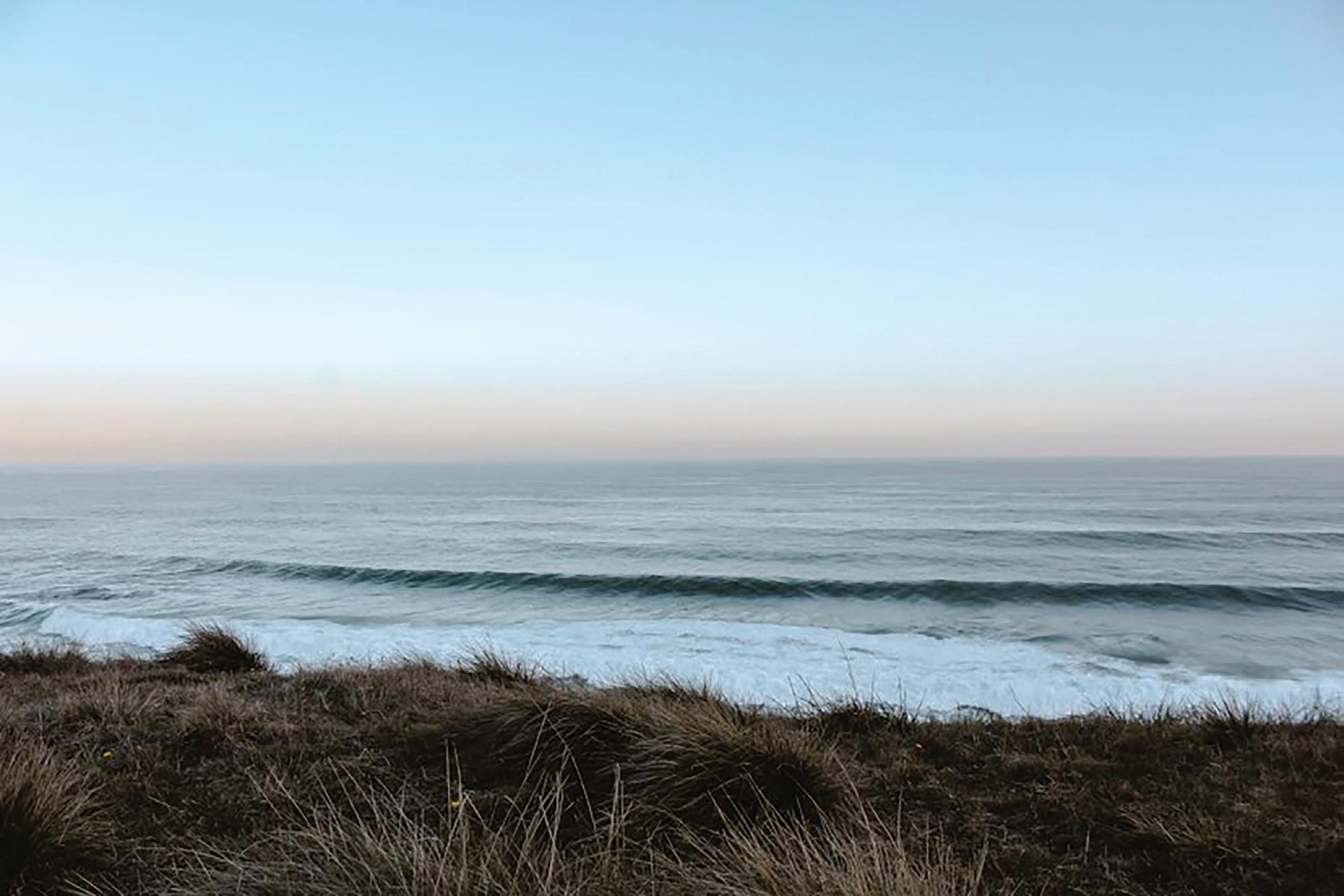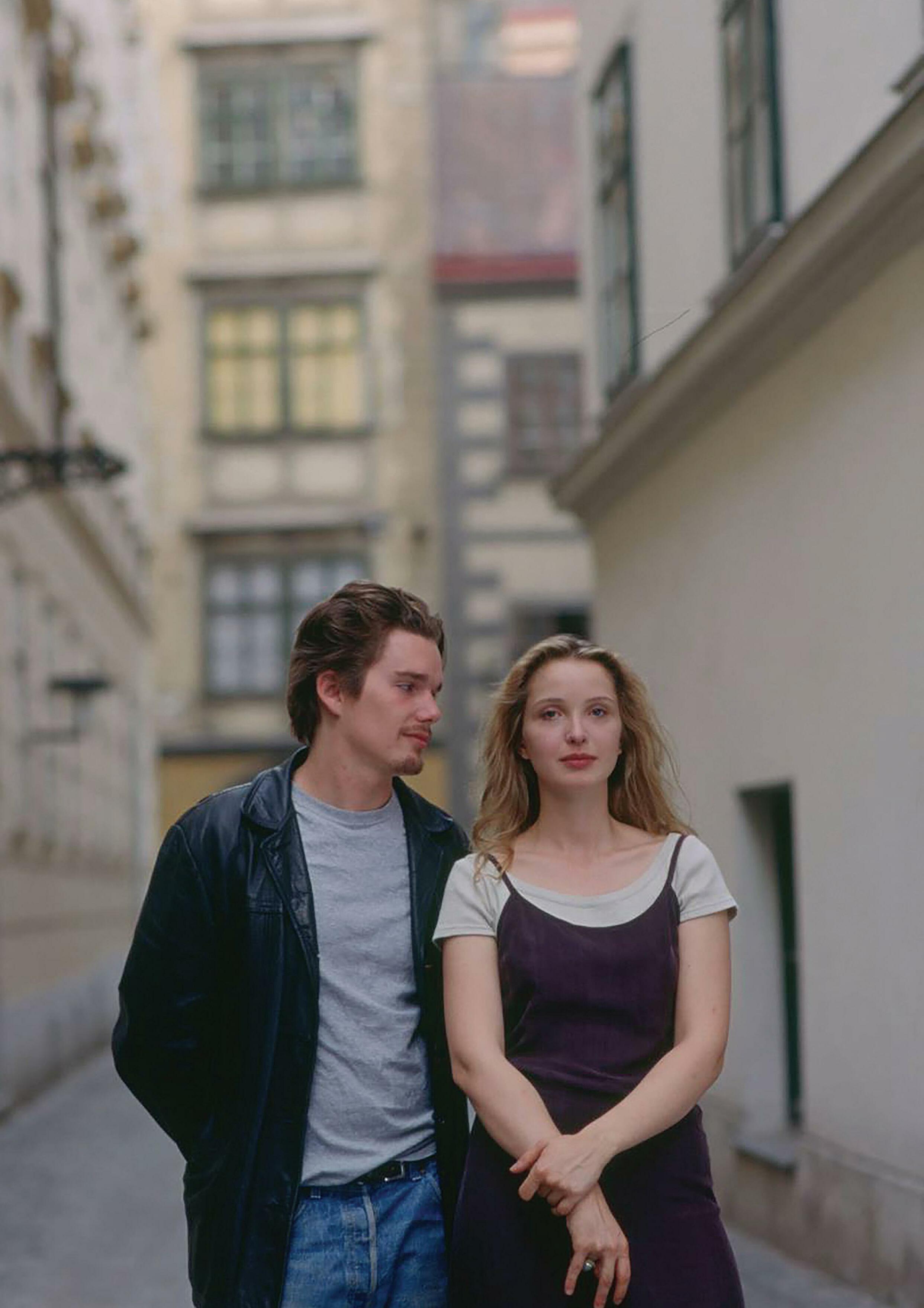
11 minute read
sunrise, sunset, midnight
from ATLAS VOLUME 15
Linklater’s ‘Before’ Trilogy: A Message About Love and Relationships, We All Need to Hear. By Patrick Traynor
“You complete me.” “To me you are perfect.” “I’m just a girl, standing in front of a boy, asking him to love me.” Most of you will know these quotes. That is because romance is one of the most popular movie genres in the world. This could possibly be due to its adaptability incorporate comedic and more serious, dramatic tones. Some of the resulting films have evolved into instant classics. Films such as ‘Jerry Maguire’, ‘Four Weddings and a Funeral’, ‘10 Things I hate about You’ and ‘Love Actually’, have become cinematic staples and have attracted huge popularity from audiences everywhere. The romance genre has had its fair share of flops as well, I’m looking at you ‘Fifty Shades of Grey.’ But these films mostly succeed due to the one major theme that everyone has no choice but to connect with. You know the one I’m talking about. Love is one theme we can all relate to. We experience this every day, when we call our family, when we spend time with our partners or those we love in secret, when we dig into a delicious meal or watch our favourite Netflix show. These films succeed in connecting with us, which can account for their popularity, but they all are guilty of one thing. They convince us that our relationships with other people are as simple as happily ever after. They present a fantasy version of love that takes away from the beauty of the real thing. Something that became clear to me when I stumbled over three small indie films, I’d never heard of, at 2am on a Thursday morning that changed my perspective on love and relationships forever.
Advertisement
“We met about 18 years ago, we kinda, sorta, fell in love a little bit and then we lost track of each other and then a decade later we ran into each other.” This line from the final film of Richard Linklater’s ‘Before Trilogy’ is a nice brief summary of the romance we follow throughout his three films. These being ‘Before Sunrise’ released in 1995, ‘Before Sunset’ released in 2004, and finally ‘Before Midnight’ released in 2013.
So, what is it about Linklater’s Before Trilogy that makes it so damn important. Well for all the film students reading, all three films are technical masterpieces. True works of genius with brilliant writing, acting and directing. However, it is the themes and messages that make these films essential for everyone to see. Now a fair warning, for many people this film will lack the entertainment factor of most other films you watch. But entertainment is not the trilogy’s main goal. Its main goal is to explore the deep concepts that affect every one of us, and to hopefully help to inspire us through these complicated parts of our lives. Over roughly two decades these films challenged the clichéd view of love seen in most other romantic films to uncover the truth behind these unexplainable and intangible concepts. Each film is set exactly 9 years after the last and follows the main characters Celine (Julie Delpy) and Jesse (Ethan Hawke) at a different point of their life and relationship. According to Hawke, each film explores three distinct phases of a relationship. ‘Before Sunrise’ deals with naïve and exciting prospect of what could be. ‘Before Sunset’ deals with the weight of decisions and the pressure to decide what to do. And ‘Before Midnight’ addresses the consequences of those decisions leading to what is now. By looking closely at each film, we can explore how Linklater, Hawke and Delpy portrays these various stages of a relationship and effectively shows us the evolution of love over time.
Part one (What could be): 1994 In ‘Before Sunrise’ we first meet Celine, a beautiful French university student. We also meet Jesse a young, curious, American Backpacker, travelling across Europe.
After a chance meeting on a train bound for Paris and establishing a mutual attraction and liking towards one another during an enlightening conversation, Jesse convinces Celine to disembark and explore Vienna with him before he catches his flight home the next morning. The two take in the beautiful sights of the Austrian capital, while conversing over every topic imaginable, life, death, marriage, religion, even milkshakes. If you can think it, they talked about it. They also find out more about each other while discussing their own life experiences. Over the course of the evening, they fall deeply in love, but must tragically say goodbye to one another the next morning and travel their separate ways.
What makes this film so unique and special, is its ability to transport its audience to feel as though we are in a dream world. We are treated to a unique and beautiful love story, between two strangers in a wonderful, new place. There’s no other reason for them to be together or to be where they are. They’re just there, experiencing, living, loving, just for the sake of it. When you think about it, it’s not an experience we feel very often in this modern world. Everywhere we go and everything we do is motivated by some cause. That’s why Jesse and Celine’s situation feels so weirdly foreign and so wonderfully satisfying to the viewer. Celine herself acknowledges this in the film, “It feels like a dream world, our time together is just ours, it’s our own creation.” This feeling the film creates, effectively portrays the exhilarating feeling of a new romance. It also creates the feeling that most of us students will relate to, of being on the verge of adulthood using our newfound personal freedom. The film achieves this so well that we feel a deeper connection towards Celine and Jesse’s romance more than any other romance film before it. As Linklater himself describes, “The first film was solely about capturing the deep, intangible force bringing these two people together.”
However, all dreams must end. Every rose has its thorn. Every deep, wonderful sleep must be rudely awakened. As the sun comes up Jesse and Celine’s fairy-tale romance is brought to an unsatisfied end. He must catch his plane; she has to return to university in Paris. The ending is bittersweet, as the two soak up the beauty of the connection they had with one another, but are saddened by the fact that it must end for good as they will probably never meet again. However...
Part Two (What to Do): 2003 (9 Years Later) In ‘Before Sunset’ Jesse and Celine incredibly meet again in Paris, 9 years later, and they have matured. They have fully transitioned into motivated, driven and disciplined adults, their lives in full order. Jesse is a successful bestselling author, married with a son. Celine is working in NGO’s focusing on environmental issues and climate change, she now commits to longer and more serious romantic relationships. Their conversations as they walk around the streets of Paris are more political and sophisticated and have to do with what’s happening in the world, rather than focusing on deeper, intangible, philosophical topics. As Hawke describes, “The first film finds us in our late teens/early twenties and is about hope and love and other such topics, whereas this film finds us in our early thirties and finds us immersed in the realities of life.”
It becomes harder for the two of them to be romantic towards one another due to their distrust in the idea of romance, having now experienced the harsh realities of false love and failed relationships. Celine talks about the struggles she’s experienced with partners who she could never truly connect with. Jesse too, talks about his unhappy marriage and how he and his wife will always regret their decision. That he has ‘stopped believing in romantic love, that he now believes that love is just a commitment.’ But what their time in Paris reveals to Jesse and Celine is how much their one night together has affected them over time. They now know how rare and special it is to truly connect and fall deeply in love with someone. Before Sunset reveals how Jesse and Celine’s love for one another, despite the romanticised notions, carries true meaning, that can apply to all of our lives. That those rare and special connections with people in your life are very few. It calls us to act on those special connections we have with those people as Celine and Jesse realise how important their connection really is. It is in the finale of the film that they must make the big decision of what should be, and how they will live and with whom they will share the rest of their lives. Will they capitalise on what they created 9 years earlier in Vienna, or will they watch each other slip away once more.
Part Three (What is Now): 2012 (9 More Years Later) In ‘Before Midnight’ is what truly sets this trilogy apart from other typical romantic films as we finally see what comes after ‘happily ever after.’ We don’t just fade to black after the big romantic gesture, we see life. We see all the good that comes when we spend time with the people that we love but also the inevitable lows. We meet Jesse and Celine during the final day of their holiday in Greece. They have been together for a long time now and have had two daughters’ together and enjoy joint custody of Jesse’s son from his previous marriage. However, with the added pressures of life including parenting, career building and other obligations their relationship is not what it used to be. It has evolved into a partnership, a team, rather than being romantic lovers. It isn’t a particularly dramatic, overly exciting period of their lives, but this is why we rarely see this stage of a relationship on screen. We don’t receive the same rush of passion at the romance of a situation. We don’t feel the sexual tension as a couple are first attracted to one another. But this is
what makes ‘Before Midnight’ so special. It shows a couple that have passed these phases, they are simply dealing with the problems they are facing. But this is important as when we all eventually commit to a person or a relationship for the rest of our lives, what is left is to simply deal with the inevitable conflicts that will come along over time, as it does for anybody in a long-term relationship. ‘Before Midnight’ captures this in a long, devastating and heartbreaking argument scene between Jesse and Celine. A bold move by the filmmakers, to take a couple we’ve only ever seen in heartfelt, romantic circumstances and portrays them in a gritty and realistic fight scene. However, it is a masterstroke that leads to a touching message about the inevitability of time and portraying relationships more realistically than most of its predecessors. This scene is purposefully hard to watch but there is a subtle beauty in the way they work through their conflict. Their connection shines as they work through their difficulties by being honest and open with one another and it allows them to save their relationship, and strengthen it at the same time. This portrayal is obviously vastly different from most other films but as Jesse puts it, “If you want true love, this is it, this is real life, it’s not perfect but it’s real.” Finally...
Over 18 years we watched two people find each other, fall in love and watch their relationship and their love for one another grow. But we’ve seen it through life’s lens. Not through the lens of a fairytale, or a romantic comedy, or a Fifty Shades of Grey erotica. But through the lens that we will see, in our everyday lives. Someday, we will go on the same journey as Jesse and Celine. Some might already be on that journey. We will all have our romance; we will find that person with whom we have a deep connection or attraction for. Become lost in our own dream world of what could be. We will all be faced with the big decisions when it comes to that relationship, will we get down on one knee and propose? Will I invite them to spend the night? Will I ask them out on a date? Will I go in for the first kiss? We finally decide what to do. Then we accept those decisions and live with what is now. The ‘Before’ trilogy is a look at love that speaks to our hearts and our minds, and shows us the amazing journey that is to come for all of us, with that special person in our lives.
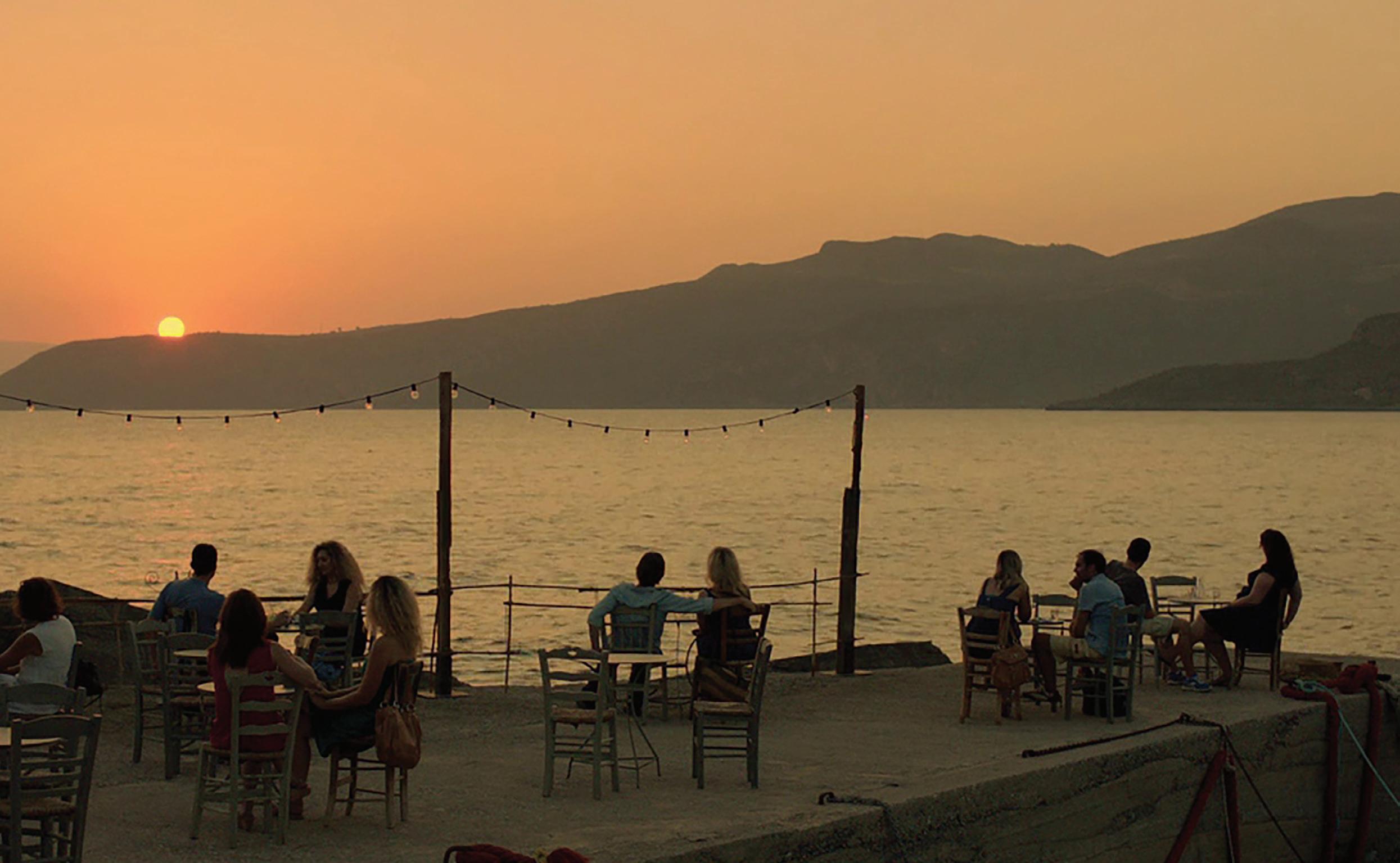
Before Midnight (2012)


RENEE POLLOCK
